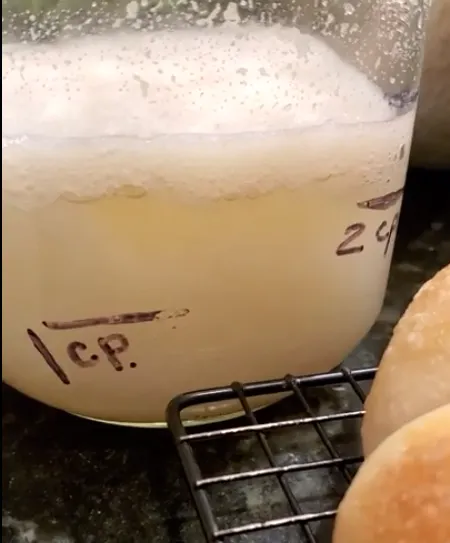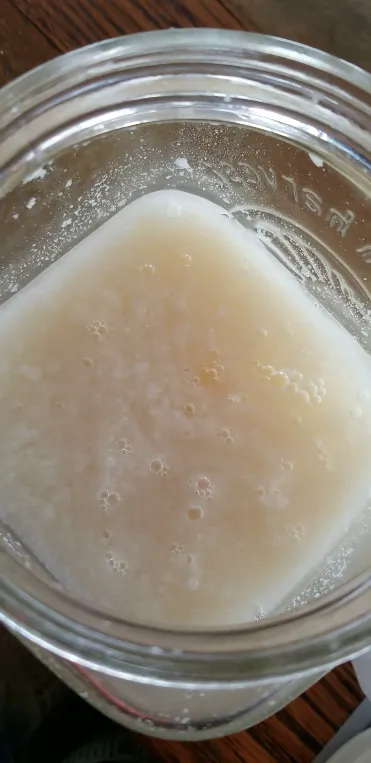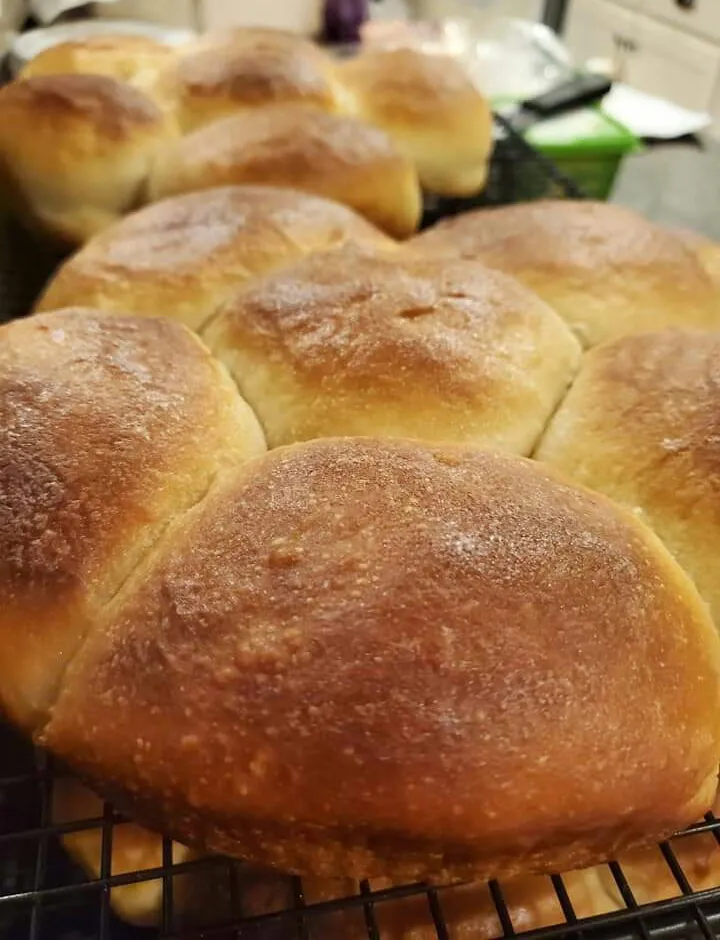I just want to find someone who is as knowledgeable about potato flake starters as most of you guys are about regular starters (flour/water). I've searched high and low, watched a large number of youtube videos and come up with nothing that really helps. I'm finding I have a bit more time to mess with this starter now that I have to work from home. :)
I made my starter in Oct 2018 and feed it weekly. I either discard or bake depending on my schedule or need. My starter began like this:
1 cup water
3 tablespoons potato flakes
1/2 cup sugar
1 tsp commercial yeast
When fed:
1 cup water
3 tablespoons potato flakes
1/2 cup sugar
What I would like to know is basically the same info you hear from others using regular starters....what is happening with the starter from a scientific aspect, how different folks treat their starters, what do they bake with the starter, etc. I'd like to know if anyone has ever converted theirs to a water/flour starter, their success and failures.
Here are a couple pictures of my starter and a batch of the rolls I made this week.



You are feeding yeast carbohydrates, that is, sugar and starches. Basic yeast metabolism.
A good way to stretch the yeast you already have if running short.
This link is interesting and lists various forms of potato starters and different ways of feeding them.
https://practicalselfreliance.com/potato-yeast-starter/
What you are dealing with is a high hydration starter and the yeast is in the water so use the yeast water to replace water in a recipe. Rising of dough will depend on the amount of activity in the starter at the time of use. Because the potato is cooked, you get the added effects of pre-gelatinized starch. That adds softness to the crumb.
Thanks! I'll check out the link. I just get 'envious' of the camaraderie of all you sour dough folks and the many conversations that go back and forth. I was hoping there were some folks like me out there.....on the border of sourdough, so to speak. LOL
With the whole work-from-home situation, I've been able to better watch my starter but not really know what is going on with it and so forth. It would be interesting to explore it with some like-minded folks.
At some point, I'll jump on the flour/water starters...I tried, I failed..LOL I hope to be able to have success. For now, just to understand what I am actually doing would be great. :)
or YW here at TFL
A potato starter is not different, only the source of food changes. I have a few yeast waters in my fridge waiting for their day of fame as a bread dough inflator. When I had some nice rose scented purple potatoes in Laos, I should have experimented more but I already had a rye starter so the need wasn't there...yet. Have you tried any aromatic potatoes? You could easily cook up some, toss in a swig of the potato starter and get some interesting fun going on. Flavours and bread crumb colour tend to decrease when diluted with wheat flour but it might be fun to try.
That reminds me, my neighbor is a potatoes farmer and often has quite a selection. Including beets. I will go put on a mask and see what he has. Meanwhile, you may want to start up a blog here using your potato starter so it is easy to find the information both for you and those interested in potato starters. Put links on this post to your blog and visa-versa. (I feel a community bake about to happen. Even existing yeast waters might be able to convert or seed a potato starter.) There is a community bake using yeast waters. You can see what yeast waters can do. All you have to do is plug in your starter.
http://www.thefreshloaf.com/node/60872/community-bake-hamelmans-swiss-farmhouse-part-1-yeast-water
We do have some very old threads here where we noticed in very old cookbooks recipes to make cake yeast and bottles of yeast using potatoes. Don't remember anyone elaborating yeast at the time of discussion but the many centuries old cookbooks are still online.
I'm gonna check it out and see what I come up with. Who knows what there is for me to learn...LOL...I say a whole lot!
I've not heard of aromatic potatoes. Now you have my mind a thinking...I'll be looking at that as well.
What is a community bake? You can see I'm not informed...LOL
Anita
https://www.archaeology.org/issues/374-2003/letter-from/8449-four-corners-potato
I was paging thru one of my favourite sites and came across this article. Does make me wonder if these potatoes after being baked in "white clay" ever fermented into other foods or contributed to corn & potatoes type breads. Or even early vodka. Would be interesting if the fermented S. Jamesii would be more palatable when fermented.
Wow, over 10,000 years ago.
The starchy roots of Jerusalem artichokes might also be an interesting source for a starter. I've run across studies with sweet potatoes. Mostly how to use peels and waste combined with yeast for better animal feed. Hey! Why do the animals get all the good stuff?
I should point out about roots and fermentation that it is wise to clean and cook the roots first before fermenting them as it is easy to transfer a "fungus" known as "rope" (lay terms) from the surrounding earth. Rope is not a nice fungus in bread and shortens the life of baked products.